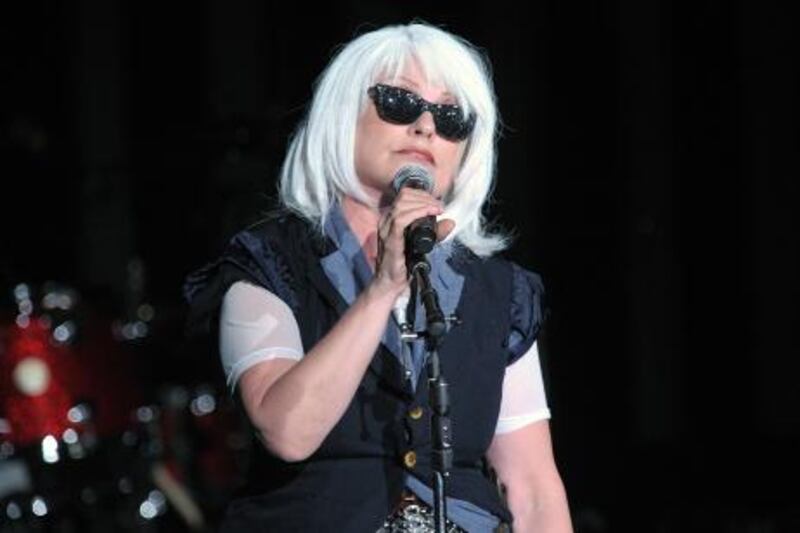Blondie
Panic of Girls
(Eleven Seven)
The author F Scott Fitzgerald famously observed that there are no second acts in American lives. Try telling that to the New York punk survivors Blondie, who regrouped at the close of the last millennium to great acclaim, earning a chart-topping UK single and belated induction into the Rock and Roll Hall of Fame. Now, having waited eight years since their last release, this ninth studio album is effectively a third-act comeback in a rock soap opera spanning almost four decades.
Delayed by line-up changes and label problems, Panic of Girls finds Blondie adapting to harsh new market realities by self-releasing on their own label. Sumptuously packaged in a strikingly surreal sleeve by the artist Chris Berens, the musical content seems to knowingly reference all stages of the band's long career. Two of three remaining founder members, the 65-year-old singer Debbie Harry and the 61-year-old guitarist Chris Stein, were historically always the core songwriters. However, the writing credits here are mostly shared between Harry, newer recruits and outside collaborators, making Stein a minority contributor.
This may explain why the album sounds a little scrambled, lacking focus at times. Overall, Panic of Girls feels more like one of Harry's sporadic solo albums than a coherent body of related songs. But this is also clearly the work of seasoned elder statesmen, with an emotional maturity to match. No longer punk-pop pups, Harry and Stein are acting their age.
For this reason, New Wave purists expecting classic adrenalin-pumped powerpop anthems might be disappointed. The closest they will find here is the feisty opening trio of revved-up guitar-chuggers D-Day, What I Heard and Mother, which blend plastic-punk nostalgia with more contemporary Europop and disco-rock elements.
Reggae is also a prominent flavour. Blondie first showed their love for lilting tropical rhythms on their 1980 remake of John Holt's The Tide is High, but Panic of Girls is awash with them. Admittedly the cover of Girlie Girlie, a former UK hit for Sophia George, leans towards hotel-bar cabaret, but it still has an agreeably sloppy charm. Much better is The End The End, a slinky lover's rock tune on which Harry's ageless voice becomes a warm, creamy purr. And Sunday Smile is terrific, a brassy fusion of reggae and Balkan wedding-band sounds composed by Zachary Condon, aka the Brooklyn-based indie-folk minstrel Beirut.
Condon turns up again playing trumpet on Le Bleu, a tumbling chanson on which Harry slips into bluesy, Gitane-smoking French. Indeed, the singer displays her multilingual skills right across the album, switching to Spanish for Wipe Off the Sweat, an upbeat blast of Latin disco-funk which redeems its Gloria Estefan-style cheesiness with sheer exuberant bounce.
A handful of generic rock plodders, notably China Shoes and Love Doesn't Frighten Me, could comfortably have been dropped. Overall, Panic of Girls is short on killer tunes, but still rich in energy and ideas. Given their long and chequered history, Blondie's third-act comeback is about as good as we could expect it to be. By no means a classic, but a perfectly decent autumnal work.










